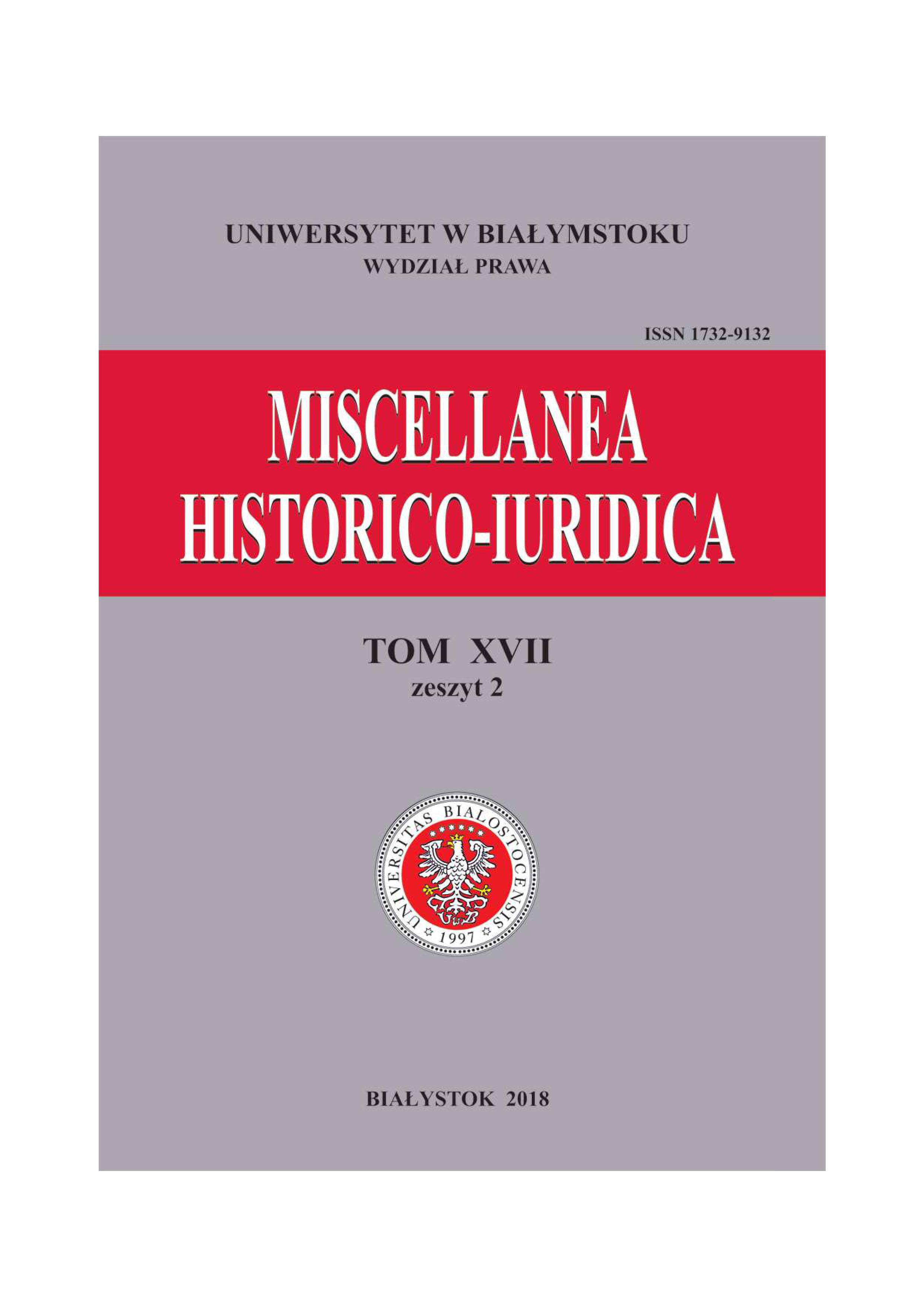Societas leonina w poglądach francuskich przedstawicieli tak zwanej eleganckiej jurysprudencji
Societas Leonina in the views of the French representatives of the so-called school of elegant jurisprudence
Author(s): Tomasz PalmirskiSubject(s): Law, Constitution, Jurisprudence, History of Law
Published by: Wydawnictwo Uniwersytetu w Białymstoku
Keywords: Roman law; Justinian; French school of elegant jurisprudence; partnership; lucrum; damnum; societas leonina
Summary/Abstract: For Roman law, the 16th and 17th centuries were a period of humanism. Lawyers who were active at that time were referred to collectively as the so-called elegant jurisprudence. The overview of the opinions of French humanist lawyers on the issue of societas leonina put forward in this article indicates that in principle they assumed such contracts to be invalid, following the example of Justinian law and medieval glosses. However, their understanding of the term differed. Thus, Iacobus Cuiacius and Duarenus understood a leonine partnership to be one in which the profit earned was accrued entirely to one partner, while the other had to bear all the losses (Balduinus considered it even worse than leonine). Cuiacius went further than that, deeming a partnership to be invalid if one of the partners partially participated in the losses while not receiving any profits. The first one to label such a partnership as a societas leonina was Donellus. The situation would differ, if – according to the concluded contract – one of the parties were only entitled to a minuscule share of the profits, while participating in the losses (societas nummo uno). According to Connanus, such contracts were valid, since a minimum contribution to a partnership should entitle one only to a minimum share in the profit, while the person contributing a lion’s share as investment should also correspondingly receive a lion’s share of the profits. The validity of such an agreement was questioned by Dionysius Gothofredus, who considered a partnership to be a societas leonina not only where one of the partners bore only the losses without any share in the profits, but also where the contract stipulated that one of the partners only had a negligible share in the profits. Antoninus Faber proposed yet another solution for cases where a societas nummo uno was concluded: according to him, the minimum ratio between the respective shares of the partners should be determined by a judge according to the principles of honest judgement. Alternatively – and this solution was considered an even more appropriate one by Antoninus Faber, the shareholder who incurs all or most of the losses should have at least one fourth of the profit.
Journal: Miscellanea Historico-Iuridica
- Issue Year: 17/2018
- Issue No: 2
- Page Range: 175-188
- Page Count: 14
- Language: Polish

